Google expands RCS encryption for Android and iPhone with Gemini bringing Google Tasks and Keep to the web
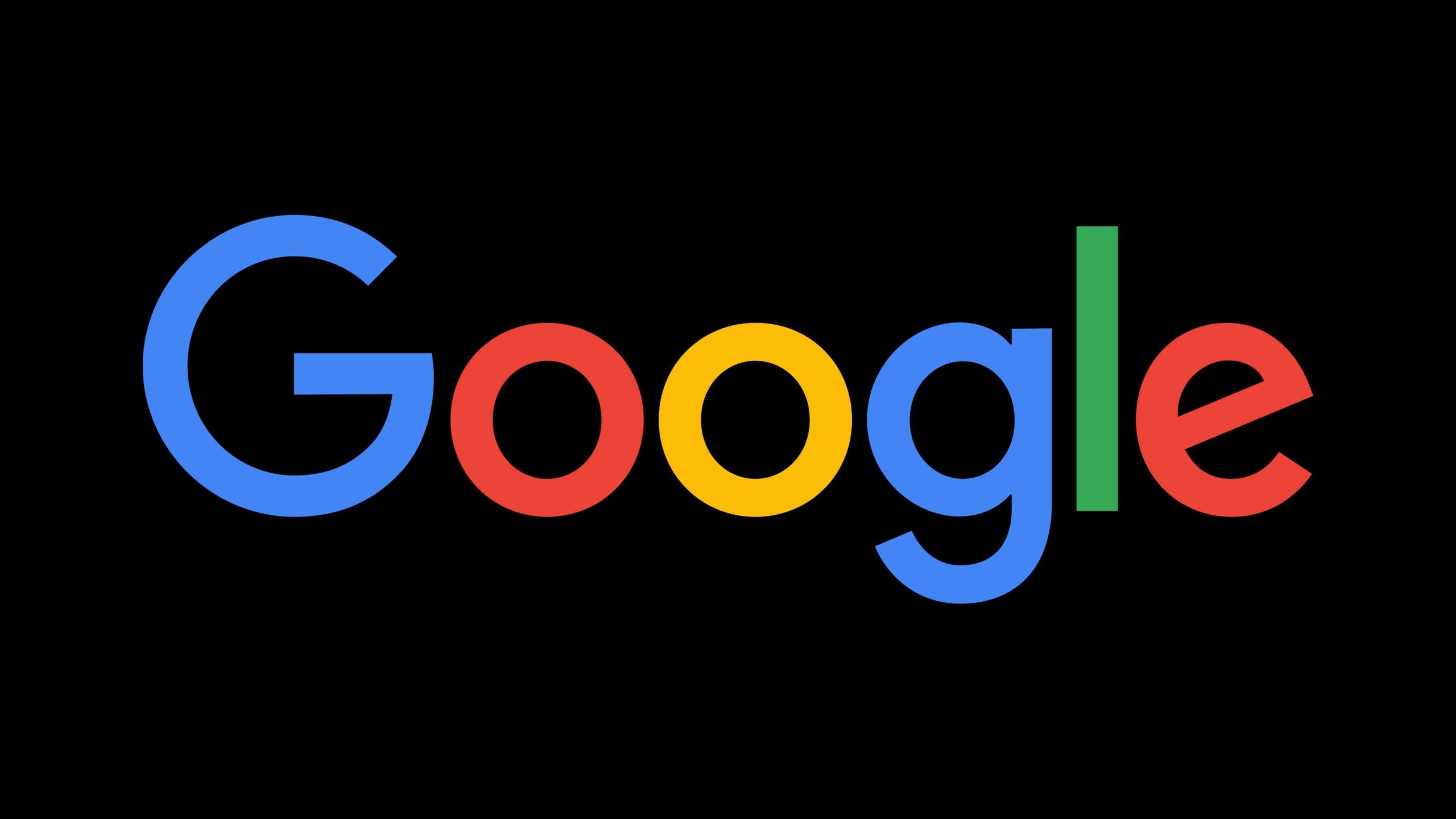
Top 3 Key Points:
- Google is developing cross-platform end-to-end encryption (E2EE) for RCS messaging between Android and iPhone.
- The Gemini web platform now supports Google Keep and Google Tasks, enabling users to integrate notes and tasks directly with AI.
- Google is focused on improving messaging features like replies, reactions, and message editing across platforms.
Google is working on enhancing the messaging experience by adding end-to-end encryption (E2EE) between Android and iPhone users. Recently, RCS (Rich Communication Services) rolled out on the iPhone, and Google is planning to introduce secure messaging between different platforms.
The GSMA, the organization responsible for governing mobile standards, mentioned that the next big step is implementing encryption that works across different devices. This will allow secure communication between Android and iPhone users, protecting them from fraud, scams, and other security risks.
Google’s Messages app already supports encryption for conversations on Android, but this protection doesn’t yet extend to iPhone chats. Google is working with various partners to make this happen, hoping to provide strong privacy for everyone.
The company is proud of its ongoing efforts to offer encrypted messaging through RCS since 2020. Google is committed to ensuring that secure communication becomes the standard for all RCS users, regardless of which platform they are using.
Apple has also shown interest in working with the GSMA to bring encryption to RCS messaging on iPhone. While encryption is a top priority, Google also looks forward to improvements like message reactions and direct replies, which are coming in future updates.
In another development, Google’s Gemini web client has added extensions for Google Keep and Google Tasks. These new tools allow users to create, manage, and find their notes and tasks from anywhere. For instance, with Google Keep, users can create lists, make notes, and even ask the Gemini AI to help them with tasks like generating ideas or planning activities. Similarly, Google Tasks lets users set reminders, manage their to-dos, and organize upcoming tasks.
These new features in Gemini were initially launched for Pixel 9 users, but they are now available to everyone on the web. Users can access Keep and Tasks under the Google Workspace Extension on the Gemini settings page, bringing added convenience to their productivity workflow.
In summary, Google’s efforts to improve messaging security and integrate productivity tools like Keep and Tasks with Gemini showcase its commitment to enhancing both communication and task management for its users.
Pixel Buds Pro 2 and Enhanced AI Features: Noise cancellation, transparency mode, and ‘At a Glance’ sports updates

Google’s Pixel Buds Pro 2 have taken a significant leap forward in audio technology, featuring the new custom Tensor A1 chip and advanced features like transparency mode enhancements. Additionally, Google’s ‘At a Glance’ widget on Pixel devices could soon include sports updates, offering even more contextual information. Let’s dive into the innovations and what they mean for users.
Why Pixel Buds Pro 2 Use Tensor A1: Beyond Off-the-Shelf Chips
When developing the Pixel Buds Pro 2, Google set ambitious goals: improving noise cancellation and audio quality while maintaining a compact design. The solution was the Tensor A1 chip, custom-designed to meet these needs. Off-the-shelf audio chips simply didn’t provide the performance or power efficiency required.
- Enhanced Noise Cancellation: The Tensor A1 dramatically increases the speed of audio processing, from the original Pixel Buds Pro’s 5–6 times the speed of sound to an impressive 90 times. This allows the earbuds to isolate external sounds, cancel noise, and generate “anti-noise” for any sound leakage before it reaches your ears.
- Independent Audio Pathways: By separating audio processing from active noise cancellation (ANC), the earbuds ensure better sound clarity and consistent ANC performance.
Google’s Silicon team developed the Tensor A1 based on performance benchmarks, computational needs, and energy efficiency targets provided by the Pixel Buds team. The chip design, finalized in 2023, paved the way for the Buds Pro 2’s September 2024 launch.
Design and Comfort: A Focus on Ergonomics
Google also reimagined the physical design of the Pixel Buds Pro 2 for improved comfort and fit. The company analyzed where earbuds naturally sit in the ear and where they could cause pressure. This research led to the inclusion of a stabilizer fin that locks the earbuds securely in place.
To ensure comfort and usability, Google expanded its testing pool to include a broader range of participants. By standardizing surveys and removing bias, they gathered data to refine the design and fit further.
Transparency Mode: Clearer Surroundings, Future Enhancements
Transparency mode, a feature that lets users hear external sounds while listening to audio, received significant improvements. Testing revealed that users prioritized the absence of unnatural sound artifacts, such as distorted ambient sounds. Google refined the mode to provide more natural audio replication.
- Future Focus Areas: Upcoming developments may include enhancements for self-voice clarity, which will improve how users hear their own voices during conversations while using transparency mode.
Pixel ‘At a Glance’ Widget: Sports Scores on the Horizon
Google’s ‘At a Glance’ widget may soon become more feature-rich, with plans to include live sports updates. This feature will pull scores and updates directly from the Google app, making them visible on your lock screen or home screen.
- Gemini Branding: Code references suggest the widget might adopt Google’s Gemini branding. While the specifics are unclear, this could imply AI-based summarization of sports scores, moving beyond simple notifications.
Currently, sports updates in ‘At a Glance’ remain unavailable, but the inclusion signals Google’s focus on integrating real-time, context-aware information into its ecosystem.
Availability and Pricing
The Pixel Buds Pro 2 are already available for purchase, with a Black Friday discount of $50 on the Google Store and select retailers. These advancements highlight Google’s commitment to pairing cutting-edge audio technology with user-centric design.
Final Thoughts: A Blend of Innovation and AI Integration
The Pixel Buds Pro 2 represent a step forward in personalized audio experiences, thanks to the Tensor A1 chip and refined noise-canceling capabilities. Meanwhile, features like sports scores in the ‘At a Glance’ widget point to Google’s broader vision of integrating AI-driven insights into everyday user interactions. Whether through better audio processing or smarter contextual updates, these innovations make Google’s ecosystem increasingly intuitive and seamless.
Android
Android 15 QPR1 Beta 3.1 fixes key bugs for Pixel devices
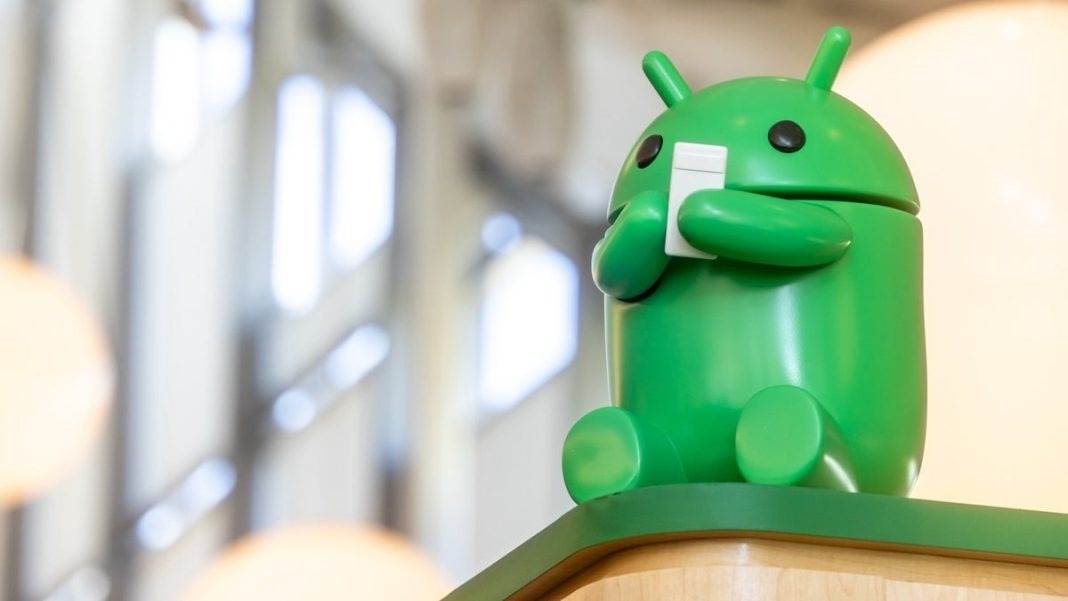
Google has rolled out Android 15 QPR1 Beta 3.1, a final bug-fixing update before the official launch of QPR1 in December 2024. While many users have moved to Android 15 QPR2 Beta 1, this update ensures stability for those still using QPR1.
Key Highlights of QPR1 Beta 3.1
This “minor update” introduces critical fixes to enhance system performance and resolve persistent issues:
- Notification and Media Control Fixes
- A bug that caused the notification shade to close without launching the corresponding app when tapping media controls is resolved.
- The issue where long-pressing the device entry icon failed amidst overlapping notifications has also been fixed.
- Bluetooth and Audio Stability
- Volume control issues with certain Bluetooth devices are now resolved, enhancing audio device compatibility.
- Material You and Visual Improvements
- Wallpaper-based color selections under Material You now show better distinction, avoiding overly similar tones.
- Scrollbar inconsistencies in system settings are corrected for a more polished UI.
- NFC and Localization Enhancements
- NFC payment reliability has been improved.
- Translation issues in Indonesian and Hebrew for apps targeting Android 14 or lower have been fixed.
- General Stability and Accessibility
- Improvements cover system stability, camera functionality, and accessibility features.
Supported Devices and Installation Options
The update is compatible with Pixel devices from the Pixel 6 series to the latest Pixel 9 Pro Fold. It includes the November 2024 security patch. Most users can install the update via the Android Beta Program, with options to flash or sideload factory images for advanced setups.
This update paves the way for Android 15 QPR1’s stable release, ensuring a smoother experience for Pixel users. For those on the Beta Program, the new version will automatically download.
For more detailed installation guides and the full changelog, visit or the official factory image repository.
This update emphasizes Google’s commitment to refining Android 15 and service experience ahead of the December release.
Google Updates: Chat sidebar revamp, TV streamer feedback, and Messages redesign

Google has rolled out several updates across its services, including a revamped Google Chat sidebar, a feedback survey for Google TV Streamer users, and an upgraded interface for Google Messages. These updates aim to improve functionality, customization, and user experience across the platforms.
Google Chat: Sidebar Customization with Custom Sections
Google Chat’s web interface now includes custom sections in the sidebar, offering users more control over organizing their conversations. This redesign introduces a unified navigation experience and flexibility for users to structure the interface as per their preferences.
Key Features of the Sidebar Update
- Custom Sections Creation
- Users can create new sections by navigating to Direct Messages or Spaces, hovering over the three-dot menu, and selecting Create new section.
- Conversations from Direct Messages, group chats, and Spaces can be moved into these sections using drag-and-drop or the Move conversation option.
- Enhanced Navigation
- All sections are unified into a single scrollable list, allowing smoother navigation.
- Users can view top conversations, expand sections to access older chats, and use a new “Show all” option for browsing conversations.
- Additional Sidebar Features
- Adjust the size (height) of sections.
- Reorder sections by dragging them up or down.
- Toggle an Unread filter to focus on messages requiring attention.
- Quickly start new messages from the three-dot menu.
- New Default Section: Apps
- A dedicated section for app integrations has been added to the sidebar.
Mobile and Rollout Details
While these features will be reflected in the Android and iOS versions of Google Chat under a “Sections” tab, creating and managing custom sections remains exclusive to the web. The update will roll out gradually to all Google Workspace customers, Workspace Individual subscribers, and personal account users in the coming weeks.
Google TV Streamer Survey: Gathering User Feedback
Google is reaching out to users of the Google TV Streamer (4K) via surveys to better understand their experience. The survey focuses on usability, design, and performance, highlighting areas for potential improvements.
Key Survey Questions
- User Satisfaction: Participants rate their likelihood to recommend the device on a 0–10 scale.
- Purchase Decision: Google explores why users chose the TV Streamer over competitors like Roku, Apple TV, or Amazon Fire Stick.
- Common Issues Reported:
- Problems with Wi-Fi setup or remote functionality.
- Difficulties in adjusting settings via the Home App.
- Slow navigation, casting issues, or insufficient storage for updates.
- Voice control or “Find my remote” features not working.
User Insights
The survey also gathers feedback on how users perceive the design and ease of using the device, as well as their satisfaction with features like smart home integration and storage capacity.
Google Messages: Merged Camera and Gallery Interface
Google Messages is testing a new design for its media picker, merging the camera viewfinder and gallery into a single fullscreen interface. This update is also rolling out the ability to send media in Original quality.
Changes in the Media Picker
- New Fullscreen Interface
- Tapping the Gallery icon now opens a fullscreen UI with the live camera viewfinder at the top and a gallery section below.
- Users can swipe to expand the gallery into a full grid or access the system photo picker through the “Folders” option.
- Simplified Media Quality Settings
- Users can select between two quality options before sending:
- Optimize for Chat: Reduces size for faster sending and less data usage.
- Original Quality: Sends images and videos at full resolution, marked by an HD+ icon.
- The “Send photos faster” toggle in Settings will be removed once this feature is widely available.
- Users can select between two quality options before sending:
- Streamlined Media Sending
- After selecting or capturing media, users can preview it in a new interface with options to write captions and confirm the recipient.
Current Rollout Status
This redesign is currently available in beta (version 20241118_03_RC00) and will be gradually rolled out to all users.
Conclusion
Google’s recent updates focus on empowering users with more customization, improved design, and better functionality. Whether through Google Chat’s flexible sidebar, TV Streamer feedback surveys, or Messages’ enhanced media-sharing options, these changes aim to deliver a seamless and user-friendly experience across platforms.
-
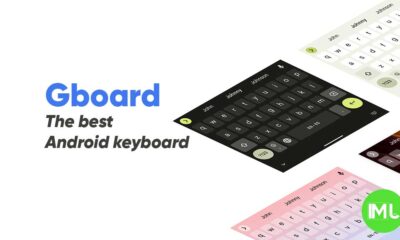
 Apps9 months ago
Apps9 months agoGboard Proofread feature will support selected text
-
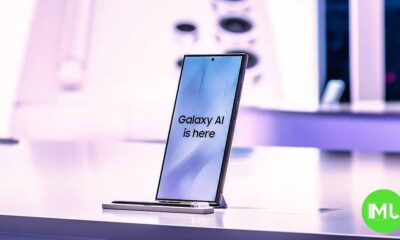
 News9 months ago
News9 months agoSamsung USA crafting One UI 6.1.1
-

 News8 months ago
News8 months agoBreaking: Samsung Galaxy S22 may get Galaxy AI features
-
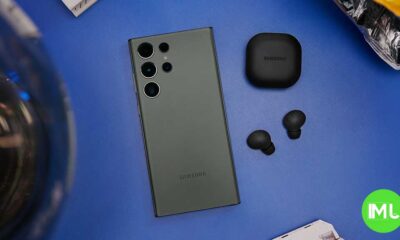
 News8 months ago
News8 months agoSamsung Galaxy S23 Ultra with One UI 6.1 and all S24 AI features revealed
-

 News9 months ago
News9 months agoOne UI 6.1 Auracast (Bluetooth LE Audio) feature coming to many Samsung phones
-

 News9 months ago
News9 months agoSatellite SOS feature coming to Google Pixel phones, evidence leaked
-
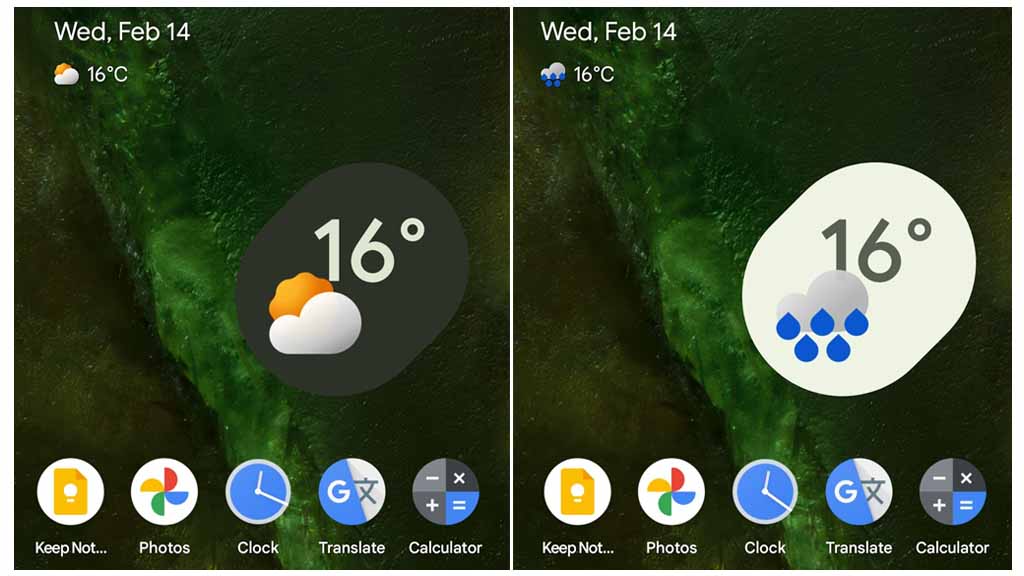
 Apps6 months ago
Apps6 months agoGoogle’s fancy new Weather app is finally available for more Android phones
-
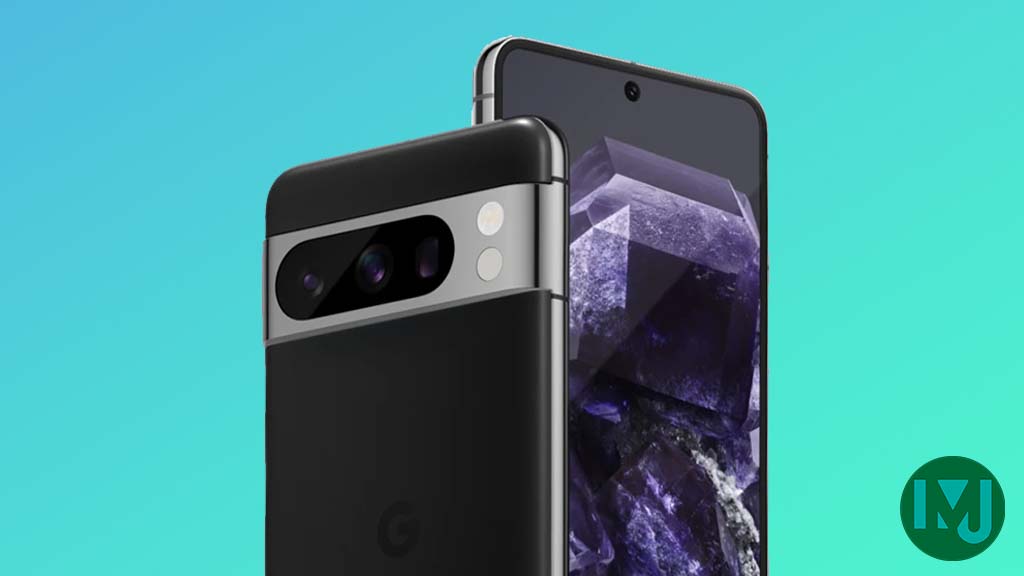
 News9 months ago
News9 months agoGoogle Pixel evolves as Europe’s third best selling flagship




